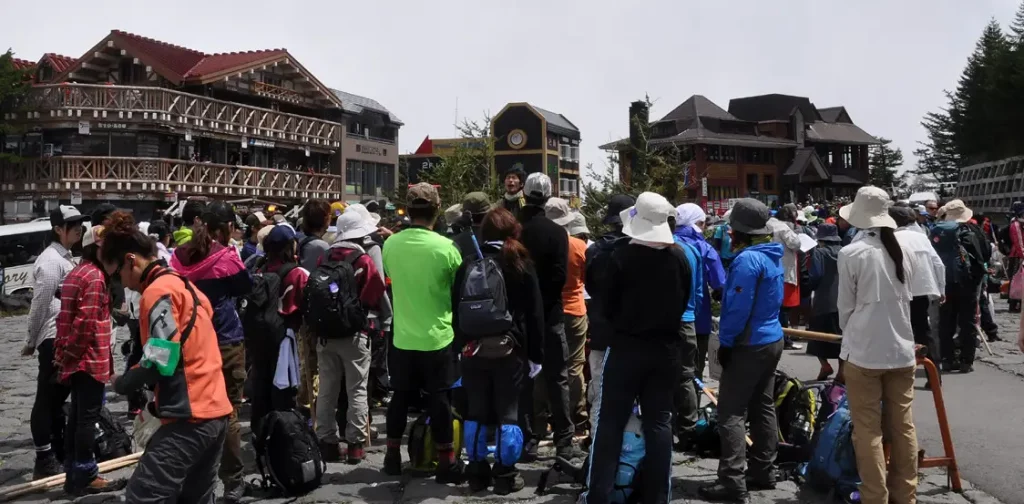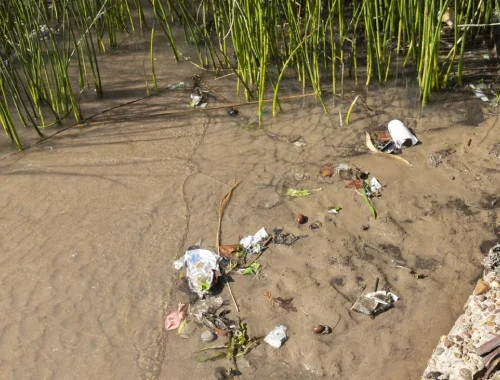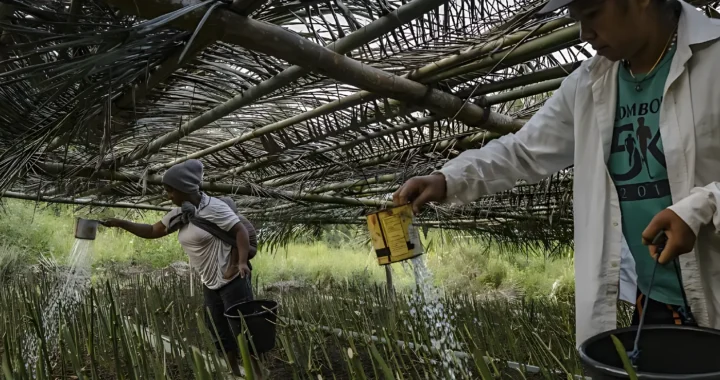Halting Overtourism in Mount Fuji

Photo: Caribb on Flickr
The tourism sector can drive economic growth in a region. With an influx of tourists, local businesses can touch a whole new market. However, the rapid growth of the sector, especially after the COVID-19 pandemic restrictions, could pose socio-economic and environmental challenges due to overtourism. In Japan, Mount Fuji has created new rules to halt overtourism and preserve its sustainability.
Overtourism Challenges
Mount Fuji is a top destination for foreign visitors due to its iconic status and natural beauty. It is also a popular spot for hiking, surrounded by lakes and forests, offering a panoramic view from the summit. It is also considered a sacred mountain, deeply intertwined with traditional belief and cultural roots. In 2023, Mount Fuji was climbed by more than 220,000 people during the peak season of July to September.
Unfortunately, the large number of hikers lend to environmental and social issues. Tourists frequently abandon significant amounts of litter, from plastics to clothing, which can harm the volcanic ash slopes. The sheer volume of international visitors, coupled with unprepared hikers or reckless climbers, also heightens the risk of accidents and strains emergency facilities.
Moreover, overcrowding at popular photo spots may create inconveniences in the daily lives of locals.
New Regulation at Mount Fuji
To prepare for more visitors and protect Mount Fuji’s environment and sanctity, the Yamanashi prefectural government has added new rules starting from July 2024. The rules apply to climbers using the Yoshida trail, which is the easiest and most popular route.
Under the new regulation, hikers will pay an extra 2000 yen (18 USD). Only 4,000 hikers are allowed per day, and they must book online beforehand. Additionally, there are rules that seek to enhance safety standards by preventing climbers from rushing to the summit without adequate rest. Climbers must opt for day or overnight hikes, and those without bookings are banned from climbing between 4 p.m. and 3 a.m.
The collected fee will be dedicated to establishing vital services, including emergency shelters along the trail in the event of volcanic eruptions and other emergencies. Additionally, climbers have the option to contribute an extra 1,000 yen (9 USD) as a donation toward the conservation efforts of Mount Fuji.
Environmental, Social, and Economic Balance
The new rules at Mount Fuji primarily aim to safeguard the mountain’s ecological balance and sustainability for generations to come by addressing overtourism. In Bali, for instance, overtourism has led to water scarcity, increased traffic congestion, waste accumulation, land use change, and extremely high living cost for locals.
In general, it is crucial to address the environmental and socio-economic impacts of an expanding tourism sector. Therefore, policies and enforcement measures that prioritize ecological and cultural preservation as well as the wellbeing of local communities must be implemented. This ensures that heavily visited destinations continue to generate sustainable economic turnover that benefit people and the planet.
Thank you for reading!
Green Network Asia – International Annual Individual Membership supports your personal and professional growth with unlimited online access to our “Exclusive Content” platform purposefully designed to showcase cross-sectoral insights on sustainable development and sustainability in the Asia Pacific and beyond. Enjoy the Membership benefits, including -but not limited to- public policy & regulatory updates, easy summaries of research findings & reports, and impact stories from governments, businesses, and civil society.


 Upholding the Machángara River’s Rights of Nature Against Pollution
Upholding the Machángara River’s Rights of Nature Against Pollution  Accelerating Gender-Responsive Disaster Management with Sendai Gender Action Plan
Accelerating Gender-Responsive Disaster Management with Sendai Gender Action Plan  ASEAN and the EU Support Sustainable Connectivity with a Higher Education Program
ASEAN and the EU Support Sustainable Connectivity with a Higher Education Program  Australia Proposes Right to Housing Bill to Tackle Housing Crisis
Australia Proposes Right to Housing Bill to Tackle Housing Crisis  World Cities Summit 2024: A Trigger to Help Build a Sustainable Singapore
World Cities Summit 2024: A Trigger to Help Build a Sustainable Singapore  Mama Bambu: How Women in Flores, Indonesia Take Part in Environmental Conservation
Mama Bambu: How Women in Flores, Indonesia Take Part in Environmental Conservation